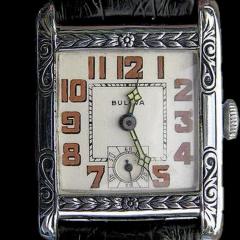-
Recently Browsing
- No registered users viewing this page.
-
Topics
-
Posts
-
I'm currently 3D printing a new basket and trays for my Pearl machine - I printed one last week in PETG material and it worked well at first. I had taken a calibration cube and soaked it in old cleaning fluid for 8 weeks and then measured it, and there was no discernable swelling or shrinkage and the cube seemed mechanically intact. All went well after the cleaning cycles and then onto the drying cycle..... that's when things went awry. The heat was more than I was expecting and the basket and individual trays warped and deformed, I later found out that PETG is rated to 65°C working temperature (PLA = 54°C) I am now trying to print from nylon (working temperature = +/- 100°C, depending on the specific blend) - but it is extremely difficult to print with, my third attempt is chugging away now while I am at work - hopefully I don't go home to a ball of wool like last time! Assuming the heating compartment can't go higher than 100°C.... but not second guessing myself...anyone have any ideas or measured it? I also have a question on the trays, maybe I'm not seeing the obvious, but how do you use the ones identified with the arrow? they are called Basket_for_large_mainplate_and_mainspring.stl Basket_for_small_mainplate_and_mainspring.stl I can see the place for the mainplate, but how are you supposed to place the mainspring, you can't uncoil the mainspring to fit around the outer circumference of the tray or else you would damage the inner tight coils. Is the idea that you supposed to lay it on top of the mainplate?
-
By Neverenoughwatches · Posted
It is possible to true the pearl basket to run better takes a good hour of filing though. -
By nevenbekriev · Posted
Yes, the general pat is this. On my diagram the points where the springs rises and levels are marked with red circles. This is only to show on all pictures (the ones that doesn't show this points as they are seen only from aside, not from above) where this points are. On You pictures, the pont where the spring rises is not marked. The point where it levels is marked with A. The point B is where the change in radius should start, but there is sharp bend there which should not be that sharp. -
I agree, very minimalist dial, but then the diamond. The 1973 R has a black dial and gold case and is similar in layout. But on the MyBulova site there really is nothing else like it...
-
This is such an odd Bulova. Off of the top of my head the only other mechanical Bulova that I can think of that has the 'Bulova' logo as an hour marker is the Golden Clipper 'J' (there must be others), one of my favorite dials. And then it has a solitary diamond, which is not unusual with Bulova, but paired with the 'Bulova' hour marker, that only leaves two quarter hour markers, and I can't think of another Bulova that has only two hour markers like that. You do you Bulova, no conformity here!
-









Recommended Posts